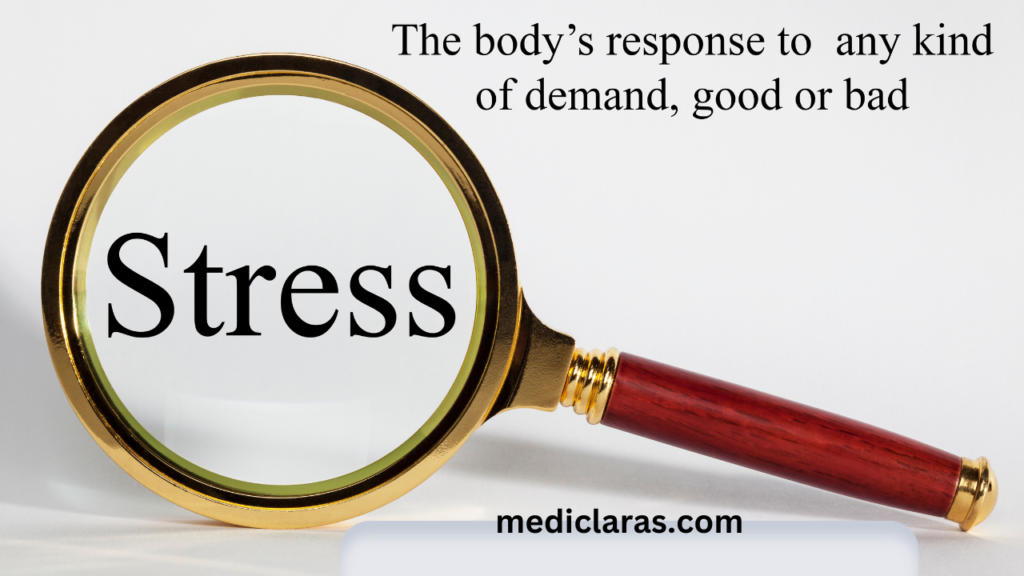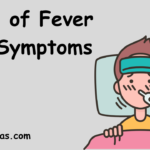Understanding How Stress affects your Health
Stress is your body’s normal response to challenges or changes. It may cause a wide range of behavioral , emotional and physical reactions. Everybody gets stressed out occasionally. It is unavoidable. Stress has many effects on your health and here we learn how stress affects your health.
What is the stress
Stress is a normal human response that everyone experience. The body is supposed to feel stress and be able to respond to it. Both physical and mental reactions are produced by your body when you encounter changes or difficulties. stress is that. Stress acts like a response within the body to handle changing circumstances.
However stress may set one alert, motivated and prepare the body to avert some kind of danger. For instance an individual might get motivated by pressure from among themselves, which help them put extra effort into their studies or examinations. Stress become a problem only when stressors persist without relief or periods of positive engagement.

Types of stress
Two kinds of stress identified. These are:
Acute stress:
This is a short lived stress.it can be either distressing or uplifting. Its the sensation you get when you are fighting with your boyfriend or riding a rollercoaster.it is also a stress that many people experience from time to time.
Chronic stress:
The stress that is long term and lasts for weeks or months is referred as chronic stress. This stress can be brought on by problems in your marriage, at work, or with your finances. Chronic stress can cause health problems ,so it’s crucial to learn how to manage it .
How stress affects your health
Fight or flight response in the body is triggered by stress. Chronic stress me have negative effects on your mood, immune and digestive system and cardiovascular functions.
Respiratory and cardiovascular system problems
Stress hormones impact your cardiovascular and respiratory systems. During the stress response your heart pumps more quickly making it harder to breathe if you already have breathing conditions. Stress can also raise your blood pressure. If you experience stress frequently or chronically, it can put you at risk of developing heart attack or stroke.
Digestive system problems:
Your liver creates more glucose or blood sugar when you are under stress in order to provide you with more energy. This additional glucose spike cannot be handled by the body, if you are experiencing ongoing stress. You are more susceptible to type 2 diabetes if you are experiencing ongoing stress. Rising stomach acid increases your risk of heartburn or acid reflux. Although stress can alter how food passes is through your body, resulting in constipation or diarrhea.
Muscular problems
When you are under stress your muscles tense up to protect themselves. If you are under persistent stress your muscles might not have the opportunity to relax. Body aches, headache and shoulder and back pain are all symptoms of tight muscles.
The immune system problems
The immune system is activated by stress which is an advantage in emergency situations. This stimulation can aid in avoiding illness and infection prevention. Stress hormones however will eventually impair your immune system and lessen your body reaction to outside threats . People facing consistent stress are more vulnerable to viral infections including flu and common cold. Additionally, stress may lengthen the time it takes for you to heal from a disease or accident.
Mental health problems
Long term stress can also cause anxiety and depression. This causes a change in your mood and irritability ,which makes it difficult to concentrate on daily work or activities. This can also affect your relationship with your family. Stress may also cause feelings of sadness and hopelessness.
Sleeplessness
Anyone can experience occasional sleep difficulties but long term stress can cause insomnia. During the day you may feel more irritated and lethargic. Additionally you may struggle with memory and decision making. Sleep deprivation can raise your chances of heart disease, obesity and high blood pressure among other health issues.
Weight gain
When you are under stress you might reach for sugar or fatty foods to fulfill your cravings. Cortisol, a stress hormone produced by the body, is linked to cravings for sugar and fat. As a result, maintaining a healthy weight may become difficult.
Skin problems
Skin conditions like rashes , eczema or acne can be brought on by stress or made worse by it. prolonged stress can make skin more sensitive and more prone to rashes, hives and other symptoms which can be uncomfortable or embarrassing.

Ways to manage stress for better health
Engage in regular physical activity: regular exercise can aid in lowering the stress hormones and enhance mood by releasing endorphins.
Maintain adequate sleep :Stress can be managed by getting enough sleep.
Have a diet with enough nutrients: Good nutrition also helps the body to handle stress. Prefer to eat a balanced diet such as lean proteins, fruits and vegetables.
Maintain relationships with loved ones: family and friends give good emotional support, which can help you to overcome stress.
Employ mindfulness and meditation techniques: Deep breathing, yoga, muscles relaxation, mindfulness and meditation are techniques which help to calm the mind and lower stress levels .
Conclusion
Stress is a normal experience of life but it gets prolonged, it can have serious effects on our health .we can get rid of stress and enhance our physical and mental well being by knowing the symptoms of stress and following the effective ways to reduce it.



